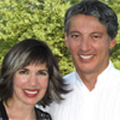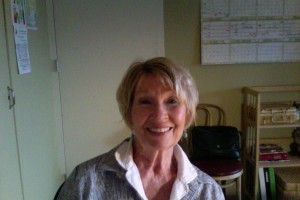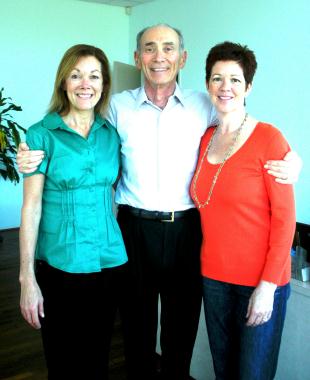“Death is a decision not to decide.”

I was on an interview years back with friends and Course teachers Nouk Sanchez and Tomas Viera, authors of Take Me To Truth. The interviewer was Carrie Triffet author of Long Time No See.
Carrie asked Tomas about his life threatening health challenge and how he was dealing with it. (That’s Tomas in the picture on the right.)
His remarks were those of someone whose vantage point of perception had shifted from within the body to beyond the body. This shift in perception is the reward of practicing forgiveness that A Course in Miracles promises. It’s like lucid dreaming where you are awake in the dream and therefore not affected by it.
What I heard in Tomas’s voice was the absolute conviction of someone that no longer sees the body as his home. It is a rare person indeed that does not care if their body lives or dies. The freedom and peace that he enjoys was absolutely palpable.
The best it gets within the dream is to (fearfully) prolong the body’s life and feel as good as possible until its inevitable end comes. Why don’t more of us ask, “Is this as good as it gets?”
The best evidence that there is a God are these folks, who appear to be living in a body, who see a different world in which there is no fear. Having left the world of sickness, pain, suffering and death, they reside in the deathless zone of the Eternal. Every one of them would tell us that this transformation of mind is available to all of us without exception. Tomas is one of those examples.
Just today on Facebook I read about three very unexpected deaths. The suffering of friends and family is enough to make anyone want to see a different world. First we must believe that it is possible. I invite those who know this place of residence and the new vision that arises within it, to speak out. Let those who suffer know that it does not need to be this way.
Many many years ago, when A Course in Miracles first came into my life, I remember reading, “Death is a decision not to decide.”
I puzzled over that for a long time. It wasn’t until recent years that I fully understood. Death is a decision made in the mind that is ruled by the ego. It is the will of the separated self. It’s not God’s Will. It is a way of preserving our false sense of identity. We seem go out one door (in death), and come back in another (in birth), but we are still simply dreaming of separation.
The mind only changes when a decision is made to place it under the authority of God’s Teacher who shows us there is no death. It is an illusion of suffering that only exists in the mind under the authority of the ego. We must each make that decision to change what rules our mind. Once we do our Eternal nature is revealed and death is forgotten as a possibility.








